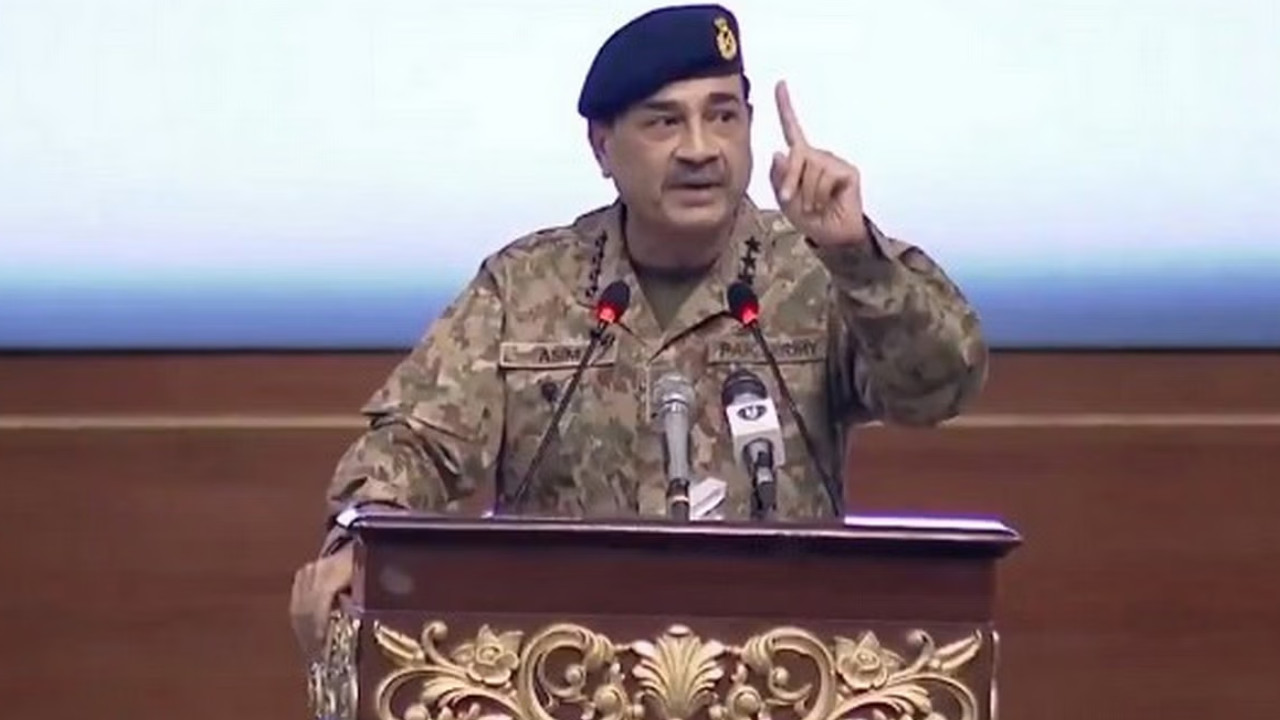
Image: Screengrab
Islamabad: Pakistan's Sharif government has introduced the 27th Constitutional Amendment Bill in the Senate, which will give lifetime rank and power to Army Chief General (now Field Marshal) Asim Munir by changing Article 243. This amendment will not only give constitutional recognition to the Field Marshal title, but will also appoint Munir to the new post of Chief of Defense Forces (CDF) and hand over unified command over the Army, Navy and Air Force.
Why are analysts calling it a 'constitutional coup'?
Critics are calling it a 'constitutional coup', as it will weaken civilian oversight and make the prime minister's advice to Munir a 'formality'. The bill has been approved by the Federal Cabinet, and will ensure Munir's supremacy by abolishing the post of Chairman Joint Chiefs of Staff Committee on November 27.
Why is Asim Munir getting the field marshal rank?
After India's 'Operation Sindoor' in May 2025, Munir was made Field Marshal, but this rank was not yet recognized in the Constitution. Now the 27th Amendment will give it lifelong status, with the protection of Articles 47 and 248—that is, legal and political immunity. Experts are calling it a 'deal of power and salute', where the Sharif government is giving a 'lifetime salute' to the army to save its chair. US President Trump called Munir 'my favorite Field Marshal', which reflects his global status. But domestically, it will become a weapon to crush Imran Khan's PTI and sideline the opposition.
Does the history of martial law in Pakistan justify the 27th Amendment?
Pakistan has been under direct military rule four times in its 77 years—Ayub Khan (1958–69), Yahya Khan (1969–71), Zia-ul-Haq (1977–88) and Pervez Musharraf (1999–2008)—in which the Constitution was suspended or reset. Now this amendment by Munir seems to follow the same pattern, but in a constitutional manner rather than a coup. According to Zionist Asma Shirazi, this would restore Musharraf-like dominance, without a coup. There have been 26 amendments to the 1973 Constitution so far, mostly related to the balance of power, such as the 8th (powers to the President during Zia's era) and the 18th (civilian reforms). But the 27th can make the army a 'permanent power centre'.
| Year/period | Military Ruler | Method of Seizing Power |
| 1958–1969 | General Muhammad Ayub Khan | Dissolution of Parliament by President Iskander Mirza |
| 1969–1971 | General Yahya Khan | The army chief took control after Ayub's resignation |
| 1977–1988 | General Zia-ul-Haq | Couped Prime Minister Zulfikar Ali Bhutto |
| 1999–2008 | General Pervez Musharraf | Seized power by dismissing Prime Minister Nawaz Sharif |
How will the 27th Amendment weaken the judiciary and provinces?
The amendment will create a new Constitutional Court, which will interpret laws and handle fundamental rights separate from the Supreme Court, but there are allegations of political influence. The High Court will ease the transfer of judges and return control of areas like education and population planning to the federal government, which will weaken the autonomy given to the provinces under the 18th Amendment. Provinces like Sindh and Khyber Pakhtunkhwa are opposing it. Deputy PM Ishaq Dar said it would 'not endanger democracy', but constitutional expert Barrister Ali Tahir described it as 'complete demolition'.
| Amendment number | Year | In which Period | Main objective/effect |
| 4th | 1975 | Zulfikar Ali Bhutto | The judiciary's powers limited, opposition arrests are legalized |
| 8th | 1985 | General Zia-ul-Haq | The President has the rights to dissolve Parliament |
| 13th | 1997 | Nawaz Sharif | The president's dissolution power ended |
| 14th | 1997 | Nawaz Sharif | Prohibited MPs from voting on party lines |
| 17th | 2003 | General Pervez Musharraf | Again dissolved power to the President |
| 18th | 2010 | Yusuf Raza Gilani | Power from the President to Parliament; Autonomy to provinces |
| 21st | 2015 | Nawaz Sharif | Military courts for terrorism cases |
| 23rd | 2017 | Nawaz Sharif | Extended duration of military courts |
| 25th | 2018 | Shahid Khaqan Abbasi | Fata merged into Khyber Pakhtunkhwa |
| 26th | 2019 | Imran Khan | Khyber Pakhtunkhwa assembly seats increased. |
India has enacted 106 amendments since 1950, which are focused on public welfare—such as the 73rd (Panchayati Raj), 86th (Right to Education), 101st (GST) and 103rd (EWS reservation). The 'Basic Structure' doctrine of the Supreme Court saves the soul of the Constitution. Whereas Pakistan ran without a constitution from 1947-73, and after that there were 26 amendments mostly related to military-civilian balance. The 27th will 'reset' it and keep the Army on top, whereas in India the uniform is under the Constitution. This difference shows the democratic maturity of both the countries—India kept on 'reforming', Pakistan kept on 'resetting'.
This amendment by Pakistan could signal the end of civilian rule, where Munir's 'iron grip' would become constitutional. Opposition leader Hamid Khan has vowed to protest, but the coalition government (PML-N and PPP) is desperate to get it passed.





Copyright © 2026 Top Indian News
